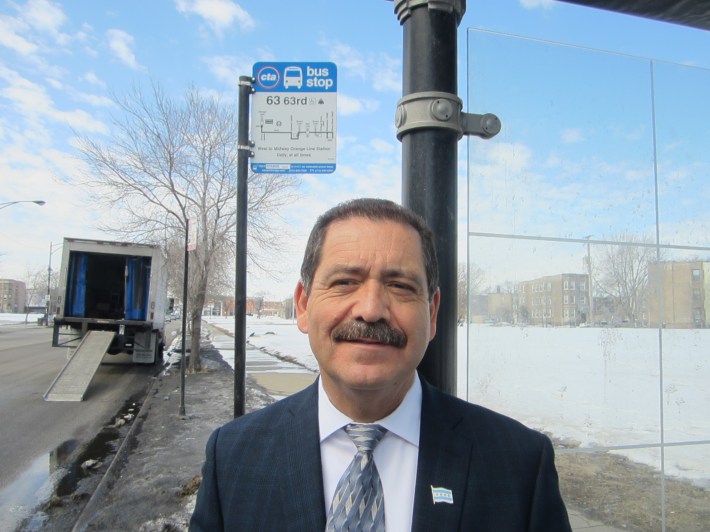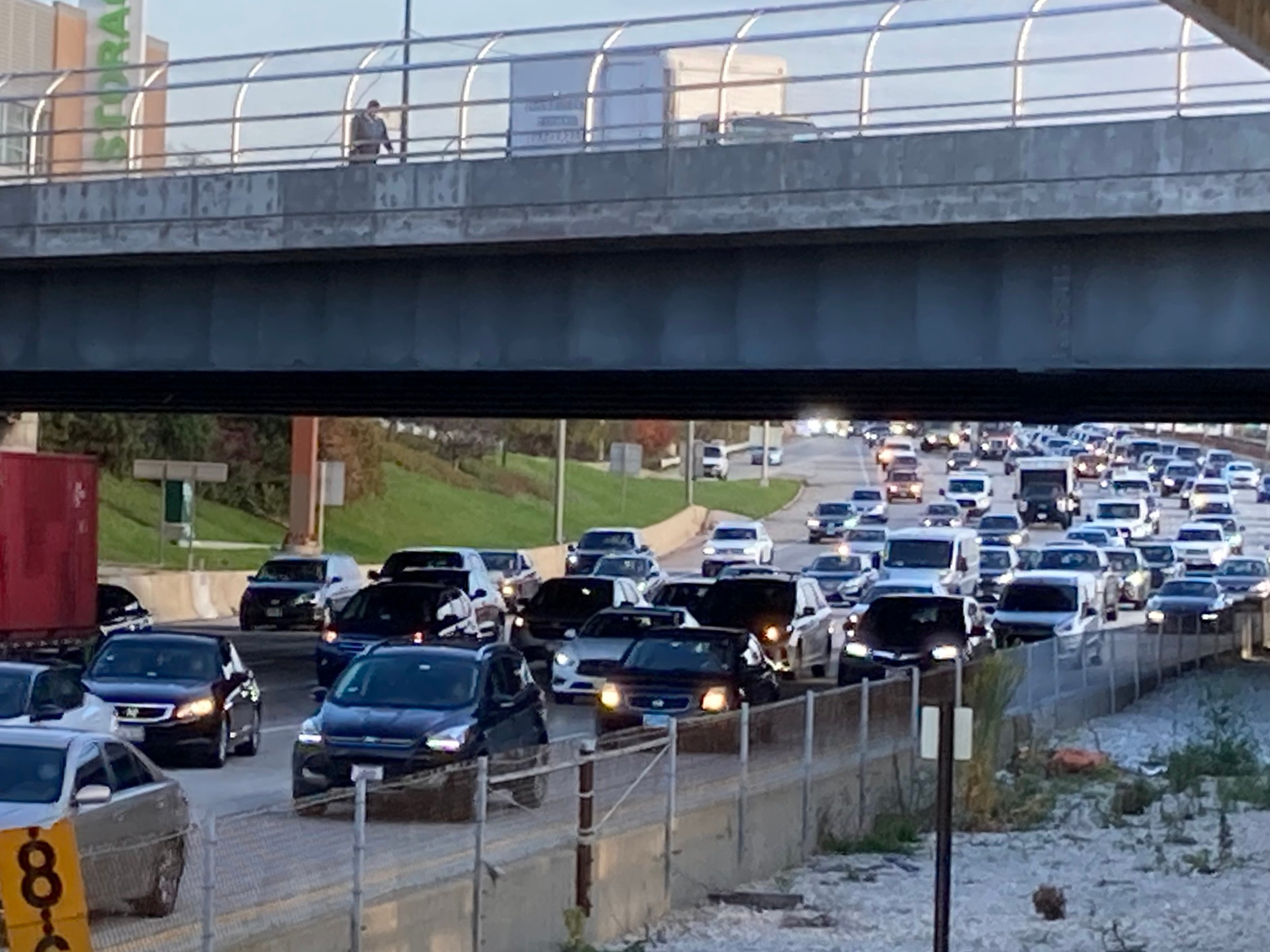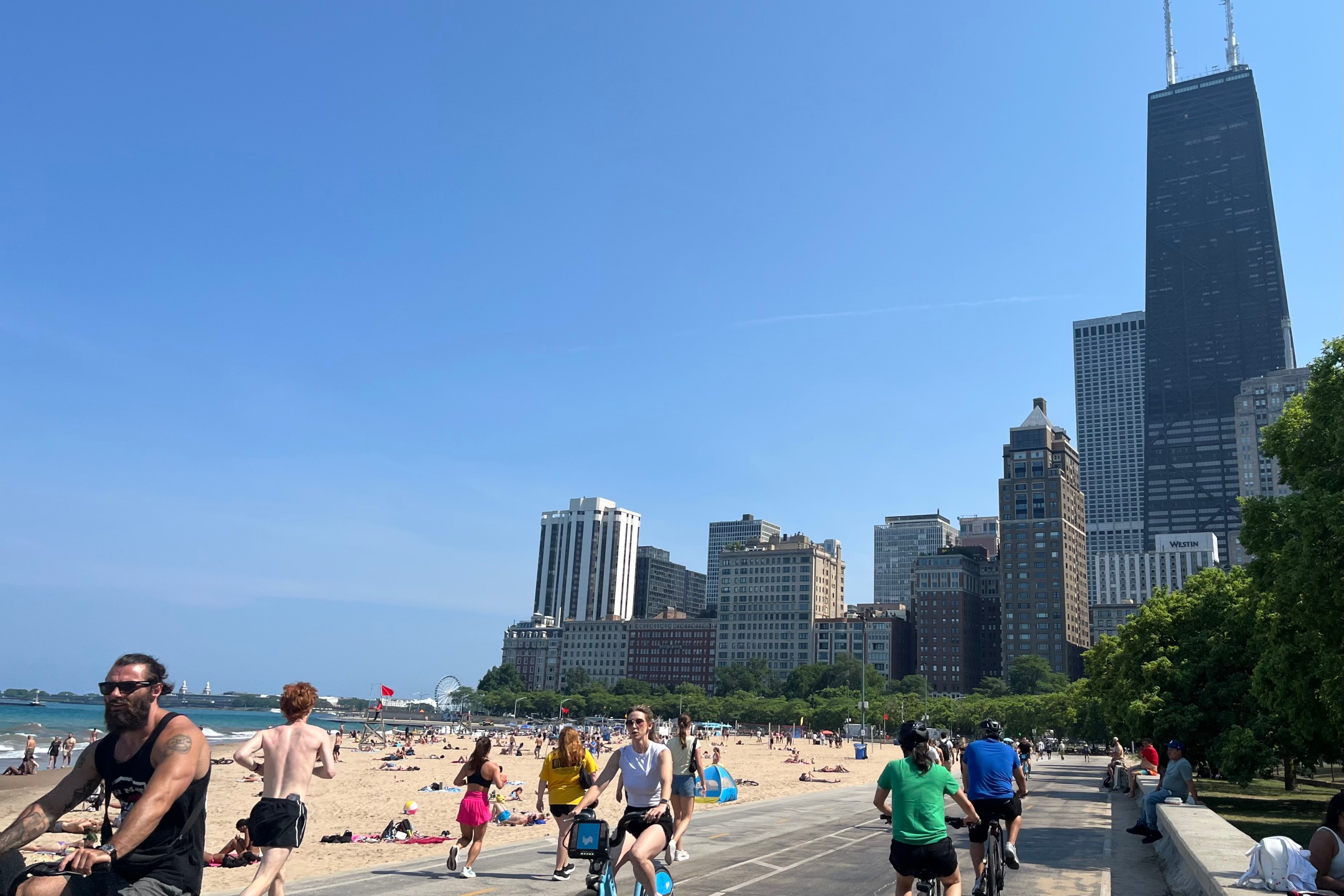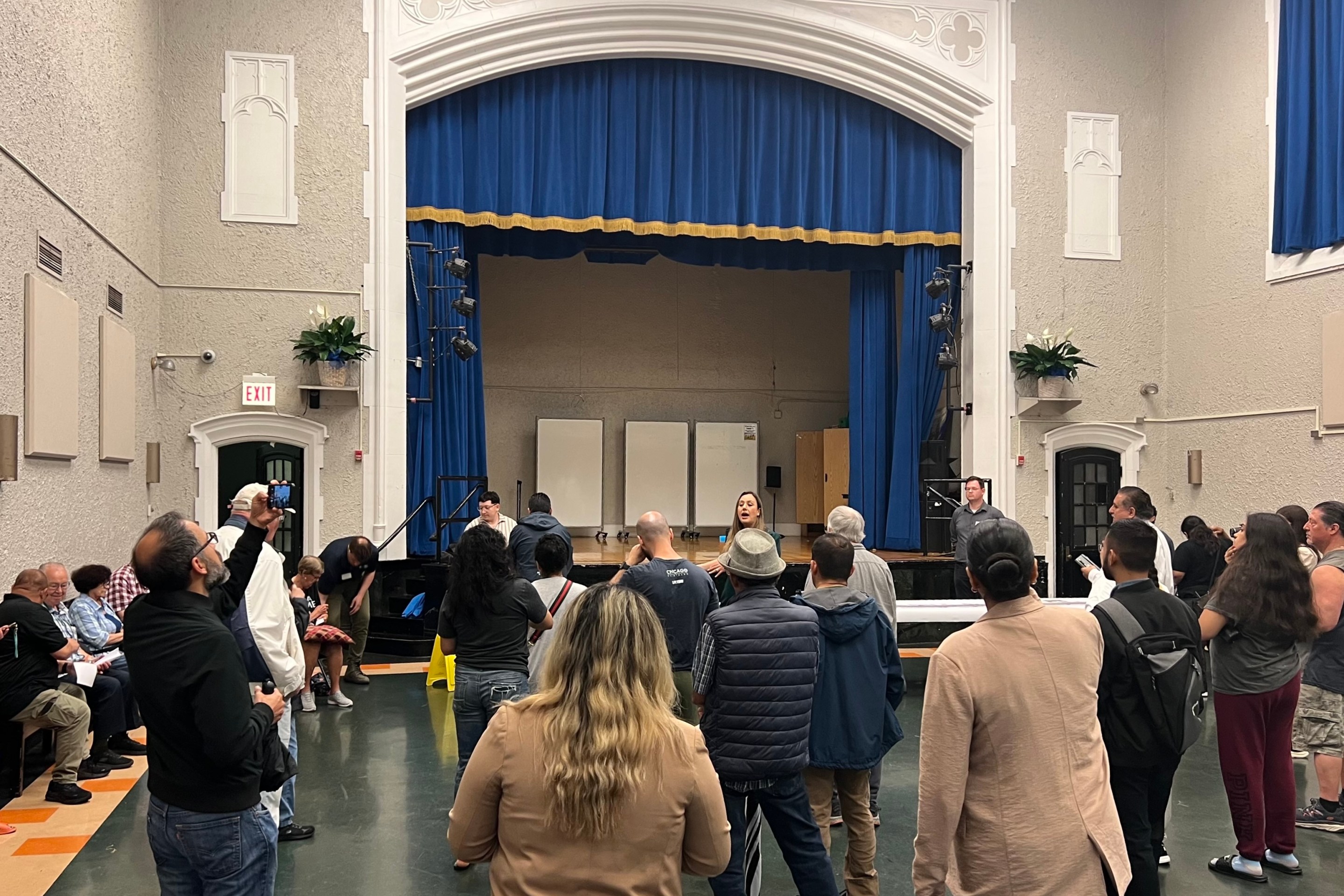Illinois governor JB Pritzker has said he wants our state to be a leader in the fight against climate change. But recently he's called for spending billions of Illinois' $17 billion from the federal infrastructure bill, the Infrastructure Investment and Jobs Act, to widen expressways and Interstates. That would encourage more driving, create more emissions, and divert money from transit, walking, and biking, making the state transportation system less equitable.
Fortunately, last week Illinois Congressional representatives led by Congressman Jesús “Chuy” García (IL-04), a member of the House Transportation and Infrastructure Committee and a co-chair of the House Future of Transportation Caucus, sent a letter to Pritzker urging him to use the transportation funds for Illinois from the Infrastructure Investment and Jobs Act on projects that will advance equity and help the environment. The letter explicitly points out that the federal money shouldn't be used for highway expansion.
Other signees included representatives Bobby Rush (IL-01), Marie Newman (IL-03), Mike Quigley (IL-05), Sean Casten (IL-06), Danny Davis (IL-07), Jan Schakowsky (IL-09) and Brad Schneider (IL-10). “Illinoisans deserve a transportation system in which everyone can affordably, reliably, and safely reach their destinations — a progressive, forward-thinking vision that centers working people’s needs including a more equitable, accessible, and sustainable transportation system that leaves no one behind," the letter states.
"We can improve transportation equity, increase safety, and address climate change, especially in Latino and Black communities harmed by legacy transportation decisions, by investing in the right policies and projects," Garcia said in a statement. "The Infrastructure Investment and Jobs Act includes the largest federal investment for transportation infrastructure in decades. This funding, complemented by the state’s historic Rebuild Illinois program, presents a once-in-a-generation opportunity for us to strengthen one of our state’s biggest economic advantages – our transportation system. This is our chance to create a better transportation system for all Illinoisans and I look forward to working with the governor and other elected officials to do just that.”

In addition to the $17 billion from the federal infrastructure bill, which can be used for walking, biking. transit, passenger and freight rail, broadband, bridges, and roads, Illinois can apply for billions more from competitive federal grant programs. For example, one such initiative will likely fund CTA bus electrification.
The letter identifies specific policies Pritzker should prioritize when spending the funding Illinois is getting from the IIJA.
- Choose projects through a transparent, data-driven process
- Prioritize investments that address equity and climate change
- Prioritize transit and active transportation projects
- Invest in maintenance and modernization of roadways, not new capacity
- Develop the diverse workforce and contractors needed to construct transportation projects
- Leverage existing federal and local funds to create a comprehensive investment strategy for housing and transportation improvements
- Coordinate with municipalities and other transportation agencies to advance joint applications for available federal funding
- Utilize modern construction techniques facilitated by IIJA to improve maintenance and construction of road, rail, transit, and aviation projects.
The letter is supported by sustainable transportation, health, and environmental advocacy groups, including the Active Transportation Alliance, the Center for Neighborhood Technology, the Chaddick Institute at DePaul University, the Environmental Law & Policy Center, the Illinois Environmental Council, the Metropolitan Planning Commission, the Respiratory Health Association, and the Shared Use Mobility Center. As such the language in the letter reflects the fact these groups understand that attempting to preserve the car-centric status quo will only worsen our state's transportation problems.
For example the section advocating for data-driven process for allocating the cash notes that proof should be provided that the funded projects will improve safety; transportation access access for low-income and marginalized residents; economic productivity; and reduce carbon emissions. Highway expansion projects don't meet those criteria.
And the section on maintaining and modernizing roads instead of adding car lanes explains why the latter approach is wasteful and harmful. "Years of experience in the Chicago region and metro areas across the country shows highway expansion fails to achieve long-term congestion relief but instead, increases pollution and further isolates people who can’t afford or aren’t physically able to drive," the letter states. "The policy framework from the Federal Highways Administration, for implementing the infrastructure bill calls for states to prioritize projects that fix existing infrastructure and improve our transportation corridors so they safely move more people – not vehicles – above projects that expand road capacity."
Therefore, the letter implies, Pritzker needs to have the Illinois Department of Transportation rethink the plan to widen Illinois roads, "transparently analyze the costs and benefits, and shift investment towards more efficient and effective projects."




